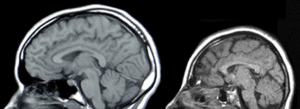Campus News
Microcephaly, rare neurological disorder, discovered in 8-year-old girl found locked in wooden cage
Meredith Dobes

Microcephaly, a rare neurological disorder, made the case of an 8-year-old New Mexico girl found locked in a cage by her adoptive mother and her mother’s boyfriend a sad discovery for detectives.
According to the Mayo Clinic, microcephaly involves an infant’s head being much smaller than the heads of other children. It is typically the result of the brain developing abnormally before birth or not growing as it should after birth. There is no cure for the disease, and children with the disease usually have developmental issues.
Microcephaly affects one out of 25,000 children in the United States annually, according to the Boston Children’s Hospital. It can be caused by genetic defects, the abuse of drugs and alcohol during pregnancy, a viral infection, rubella or could be related to other genetic conditions, according to the National Institute of Neurological Disorders and Stroke and the Mayo Clinic.
The child in question did have developmental disabilities as a result of microcephaly, according to police.
Police said Cindy Patriarchias, 33, was charged with one count of negligently causing child abuse, and Edmond Gonzales, 37, was charged with one count of negligently permitting child abuse Friday night.
The girl was found locked in a small wooden cage after Patriarchias’ estranged husband noticed the girl’s absence at an elementary school function Friday night where Patriarchias and Gonzales took her three other children and notified police that the girl might be home alone. When Patriarchias arrived at home, she allowed police to enter, where they freed the girl from the cage, which was in a bedroom, and had her examined by medical personnel.
According to ABC, the girl has been placed under the care of child protective services.













.jpg)

